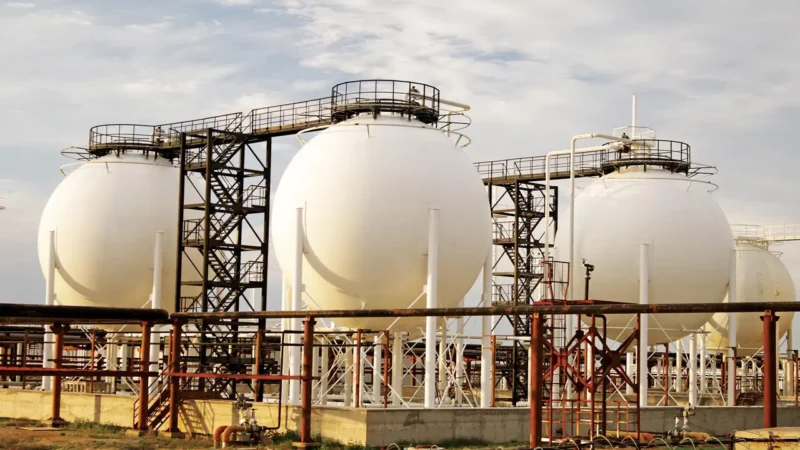Compressed Natural Gas (CNG) has attracted an additional N80 billion in investment within just one week in October 2024, as Nigeria ramps up efforts to transition away from Premium Motor Spirit (PMS), commonly known as petrol.
This surge in CNG investment comes as the nation seeks solutions to alleviate the rising cost of PMS, which has placed a heavy burden on Nigerians.
Michael Oluwagbemi, the CEO of the Presidential Compressed Natural Gas Initiative (P-CNGI), disclosed this in an interview with The Nation. He noted that the CNG market had already attracted $175 million in investments by September 2024.
With the recent N80 billion injection, the total investment in the CNG sector now stands at an impressive $191 million, showcasing the rapid expansion of this alternative fuel market.
Oluwagbemi attributed the growth in investments to several factors, including government initiatives, private sector engagement, and the awarding of substantial contracts for gas development projects by the Midstream and Downstream Gas Infrastructure Fund (MDGIF). Last week alone, the MDGIF awarded N122 billion worth of contracts to six companies, with four of those companies specifically focused on CNG development.
CNG Adoption Accelerates Amid Global Disruptions
Originally, the P-CNGI program had set a target to roll out CNG-powered vehicles within a 15-18 month timeframe. However, global events, including the ongoing conflict between Israel and Palestine, have prompted an acceleration of this timeline.
The disruption of global supply chains has made it imperative for Nigeria to rely more on local manufacturers, pushing forward the delivery of CNG vehicles.
This shift towards CNG has not only sparked investment but has also created thousands of jobs across Nigeria. According to Oluwagbemi, the CNG market has generated employment for approximately 20,000 people, further highlighting the economic benefits of embracing this alternative energy source.
Oluwagbemi also revealed that the number of CNG conversion centers in Nigeria has exceeded expectations. Initially, the P-CNGI set a goal of establishing 100 conversion centers by the end of 2024. However, as of October, the country boasts over 125 centers, a significant increase from just seven centers a year ago.
President Tinubu’s Bold Vision for CNG-Powered Commercial Vehicles
In a move to reduce Nigeria’s dependency on PMS, President Ahmed Tinubu has set a target to convert one million commercial vehicles and rideshare services to CNG, free of charge. This initiative underscores the government’s commitment to providing cleaner and more affordable energy alternatives to Nigerians, particularly for those in the transportation sector.
Oluwagbemi highlighted that commercial vehicles play a critical role in Nigeria’s transportation system, responsible for about 90% of daily passenger conveyance across the country. The transition to CNG-powered vehicles is expected to significantly reduce fuel costs for commercial drivers, providing relief to both operators and passengers who have been impacted by the fluctuating PMS prices.
Challenges in CNG Rollout
Despite the impressive progress, there are still challenges facing the widespread adoption of CNG in Nigeria. One of the primary obstacles is the availability of gas at conversion centers. Once vehicles are converted to CNG, they require a gas top-up to calibrate the system, a process that has been hindered by inconsistent gas supply.
However, P-CNGI is working closely with the private sector and the Nigerian Midstream and Downstream Petroleum Regulatory Authority (NMDPRA) to address these challenges. One solution being explored is the deployment of mobile refueling units, which will ensure that converted vehicles can access gas more easily and efficiently.
In addition to gas availability, infrastructure limitations have also slowed the rollout of CNG in certain parts of Nigeria. Oluwagbemi noted that while 10 states have already activated CNG programs, others, particularly in the northeast and northwest regions, are facing delays due to the lack of gas pipelines.
However, plans are in place to engage with state governments and explore the possibility of linking these regions to the Ajaokuta-Kaduna-Kano (AKK) Gas Pipeline project.
“The main impediment in some states is the absence of gas infrastructure,” Oluwagbemi explained. “We are mobilizing states to see what can be done to link them to the AKK pipeline, which will bring gas to these regions.”
Oluwagbemi remains optimistic about the future of CNG in Nigeria, pointing to the recent surge in investment and the increasing number of conversion centers as evidence of the sector’s potential.
He expressed confidence that by the end of 2024, an additional eight states will activate CNG programs, bringing the total to 18 states, with three more states expected to join the initiative in October.










Join our Channel...